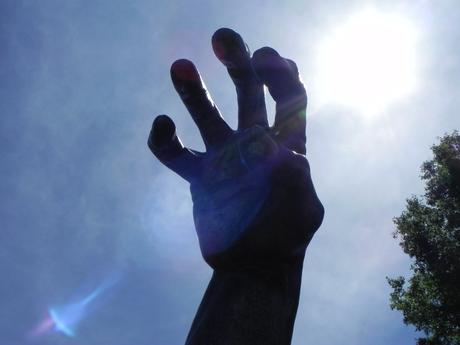Kim Stanley Robinson’s The Ministry for the Future wasn’t my favorite book read the first half of this year, but reading the headlines about India’s heatwave took me back to it. That’s precisely the way the book starts out—with an intense, deadly heat wave in India. As a nation lacking infrastructure in relation to the size of its population, and lying near the equator, India is particularly vulnerable to global warming. We all are. As the planet heats up and weather becomes more erratic and extreme, food shortages will appear. At the moment we’re concerned because Covid and Putin-War have driven inflation to incredible highs. A trip to the grocery store or gas station is like a horror film. Meanwhile the planet’s heating up and Republicans are pushing for four more years of Trump environmental degradation. Can we please open a window here?
Global warming has been challenged by many because of their religious conviction that the world ought to end. Apocalypse is probably the Bible’s most dangerous teaching. Speaking only for myself, I didn’t know there was an Indian heatwave until headlines took a break from Putin-War and America’s mass shooting crisis. And oh, India’s sweltering under temperatures over 110 degrees. People are dying. Birds are falling from the sky in mid-flight. We had a couple days in the 90s around here before the end of May. Those were some uncomfortable times. Meanwhile in India it was twenty degrees hotter.

The human ability to ignore life-threatening problems we create for ourselves in service of our theology is remarkable. Even as experts declare religion is no longer important, it’s slowing killing us. We focus our resources on making money, as if money will do us any good when we’re the lobsters in the pot. As a species we’re amazingly capable. Billionaires can afford their own private spaceships—something most nations in the world can’t spare cash to buy—and we have proven ourselves endlessly inventive. When it comes to the basics—the need to believe, for instance—we turn a blind eye and pretend it’ll just go away. Religion scorned is a very dangerous thing. I once heard a talk by a scientist presenting a rosy technological future. I raised my hand and asked about religious objections and he mused, “I hadn’t even thought about religion.” His future was progressive and optimistic. Robinson’s is quite a bit less so, although it ends by suggesting we might manage to pull through, with only millions of deaths. As Donovan says, “It’s time to ask yourself what you believe.”
